A European initiative is advancing its use of Virtual Reality (VR) technology to manage aggression in prison environments. Through immersive VR simulations, the programme provides detainees with skills in self-regulation and prosocial behaviour while training prison staff in de-escalation and intervention techniques. A three-day summit in Ankara brought together experts from across Europe to further develop and test VR-based strategies, combining theoretical sessions, hands-on VR practice, and field visits.
Addressing aggression within prison settings is an ongoing challenge, as environments marked by isolation, limited resources, and overcrowding can intensify tension, hostility, and frustration among incarcerated individuals (read VR4React’s 2023 report here). Reactive aggression, which is unplanned and triggered by perceived threats, is particularly prevalent and disruptive in these settings (Bushman & Anderson, 2001¹).
The VR4React project aims to combat this issue by using Virtual Reality (VR) as a training tool to help both detained persons and staff manage aggression more effectively. By creating immersive VR experiences, the project seeks to equip the first group with prosocial behaviours and self-regulation techniques while also providing guards with deescalation and intervention skills that support safer prison environments.
As part of the project’s efforts to promote this solution next to sector decision-makers, a VR4React Technological Training Summit was held in Ankara from October 22nd to 24th, 2024. This summit brought together prison directors, prison workers, case managers, probation officers, and trainers from 8 countries. During this three-day event, participants engaged in a mix of theoretical sessions, practical VR demonstrations, and field visits aimed at understanding the potential of VR-based interventions in correctional settings.
Setting the Foundation for VR4React
The summit began on October 23rd with an official welcome from Mr. Taner Kocalar, Ankara’s Probation Director, followed by presentations providing a comprehensive overview of the VR4React project and the topic it addresses.
Participants engaged in sessions that dissected the theoretical underpinnings of aggression in correctional environments, grounding the practical VR work in research backed insights. This foundational knowledge set the stage for understanding how VR simulations could serve as controlled environments for incarcerated individuals to practise prosocial behaviour, making this innovative approach both practical and impactful.
Throughout the summit, attendees actively experienced the VR training scenarios. In multiple rounds of VR testing, participants experienced the scenarios first-hand from both incarcerated individuals and staff perspectives.
To complement the VR experiences, the summit introduced attendees to a structured e learning platform designed to deliver both theoretical knowledge and practical techniques for managing aggression. The VR4React course consists of three modules that cover everything from the causes of reactive aggression to effective intervention strategies. This course forms the backbone of the VR training, providing foundational knowledge essential before users engage in practical VR sessions.
Participants reviewed these modules extensively, giving feedback on clarity and relevancento ensure the e-learning content effectively supports the practical VR applications. Together, the e-learning and VR components provide a comprehensive training package that equips users with the knowledge and experience required to address aggression effectively.
A key part of the summit included field visits to local prison facilities and the Ulucanlar Prison Museum. These visits grounded the training experience in the everyday realities of correctional work.
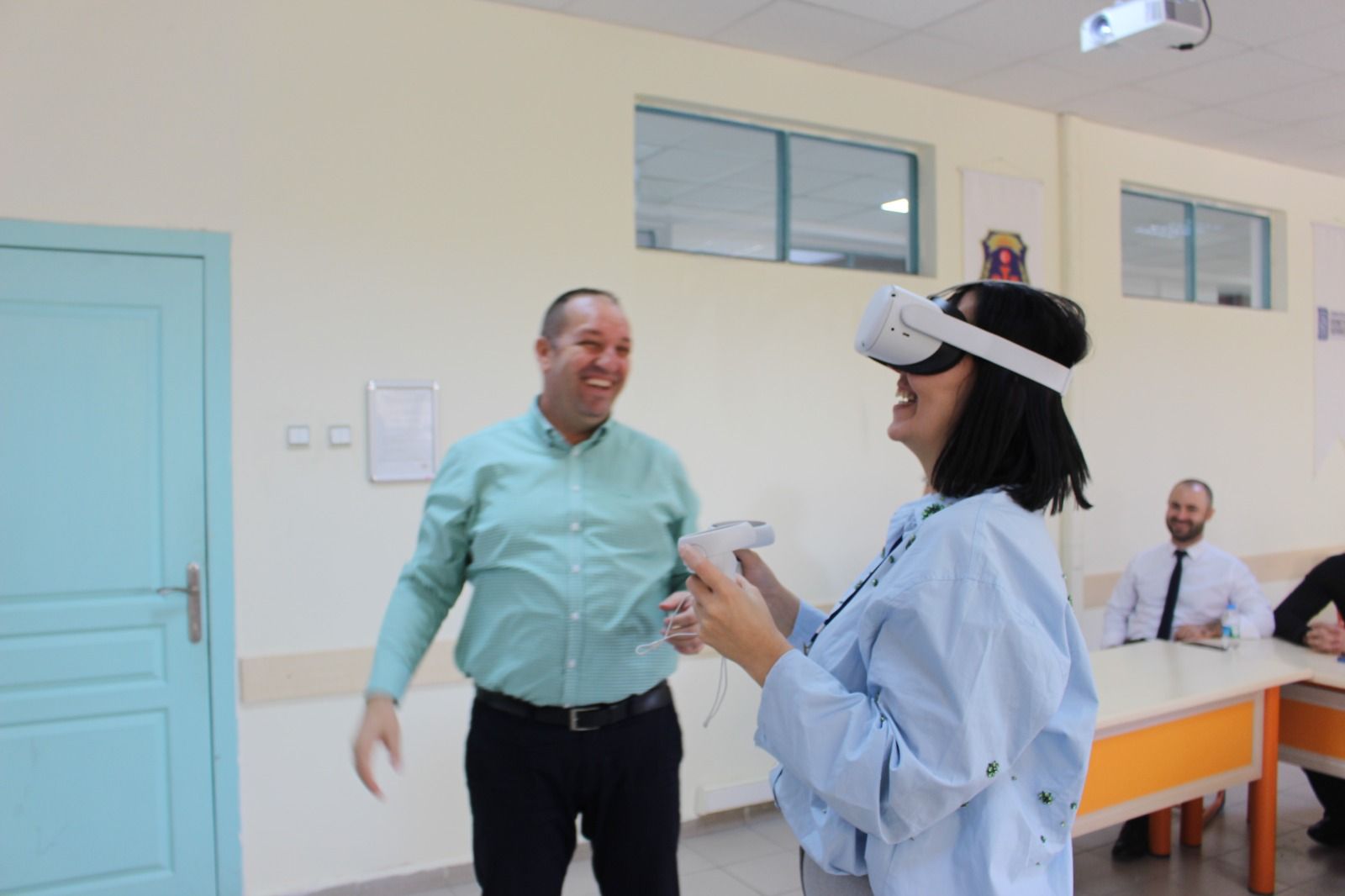
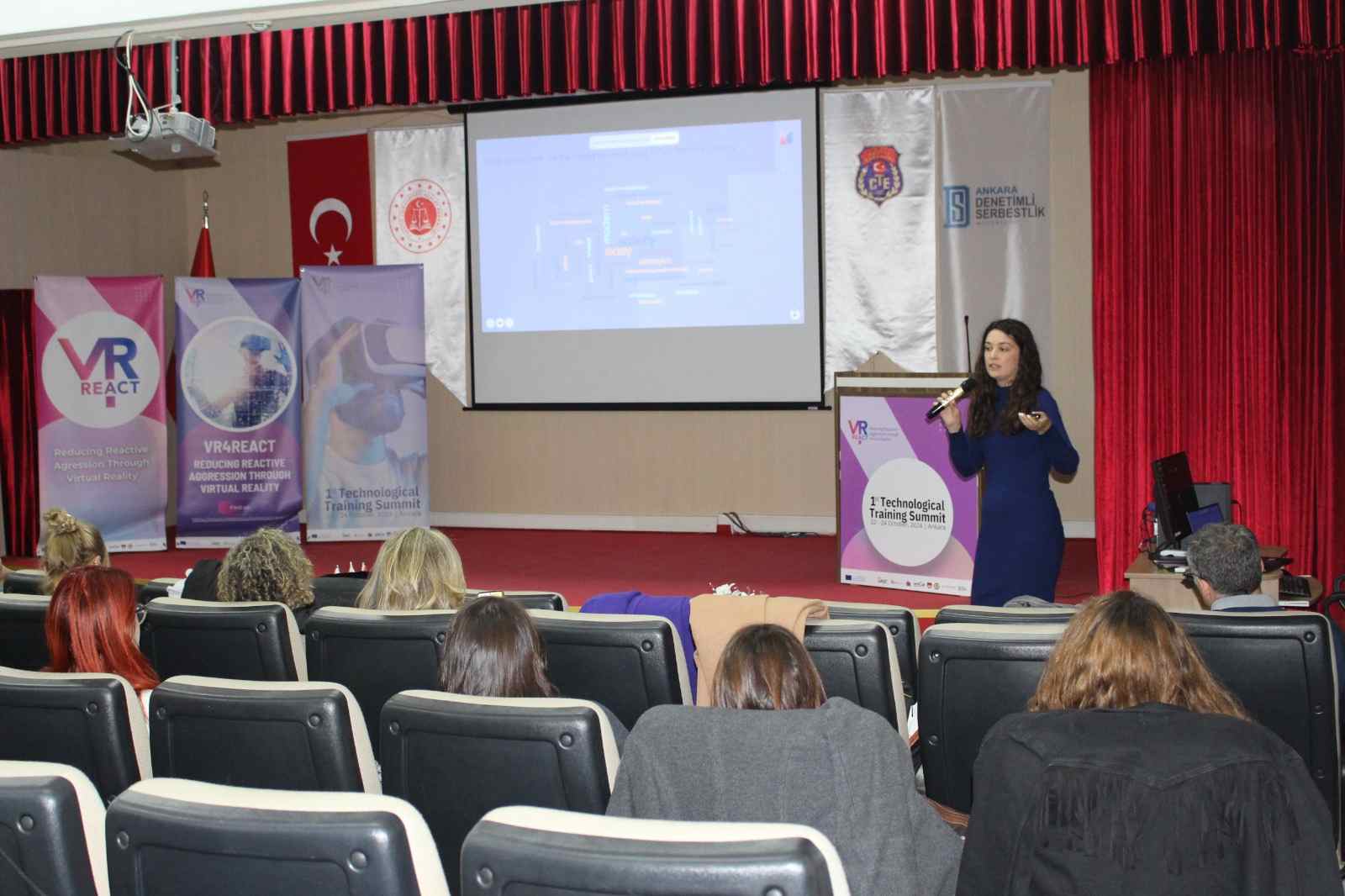
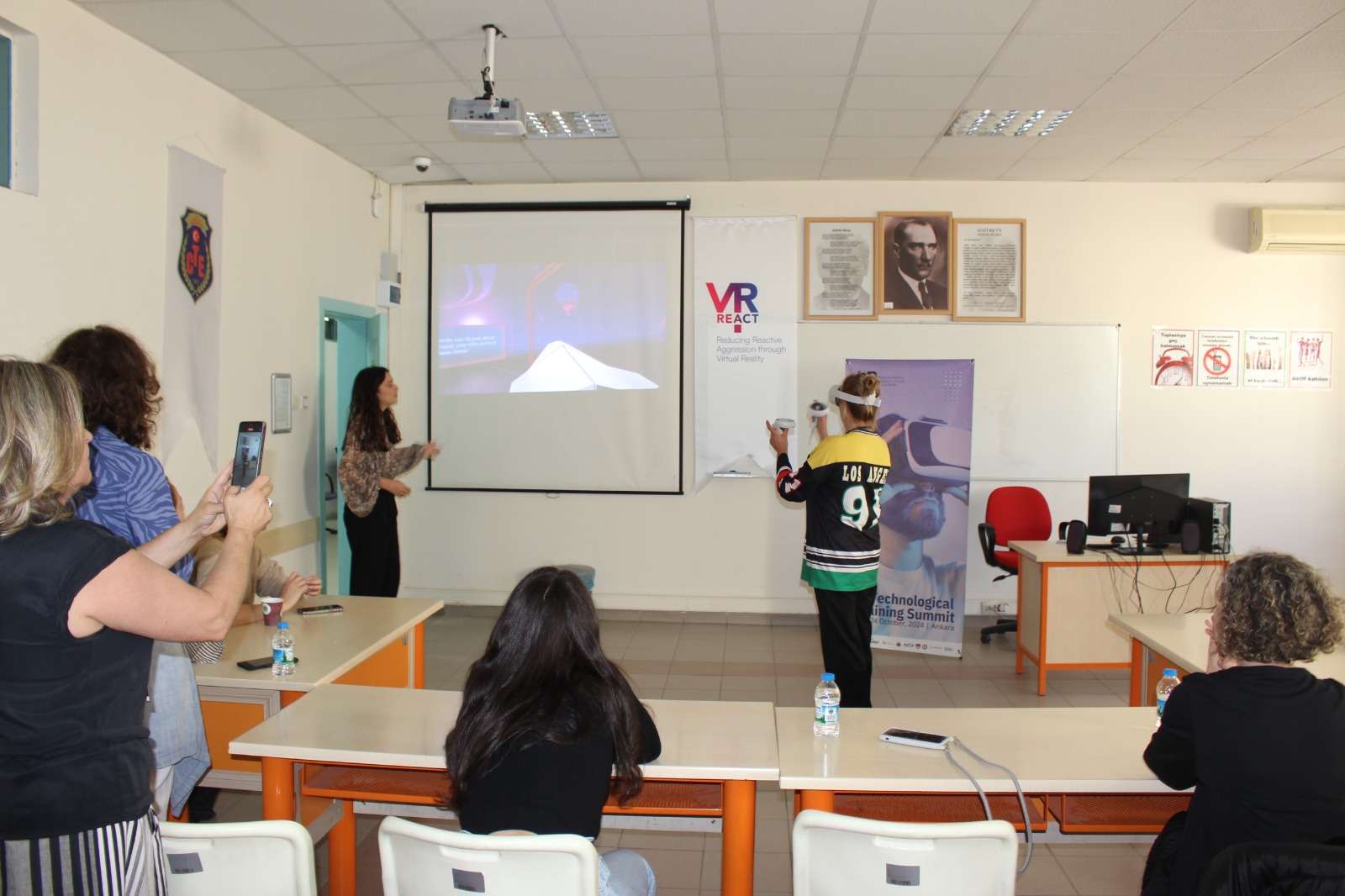
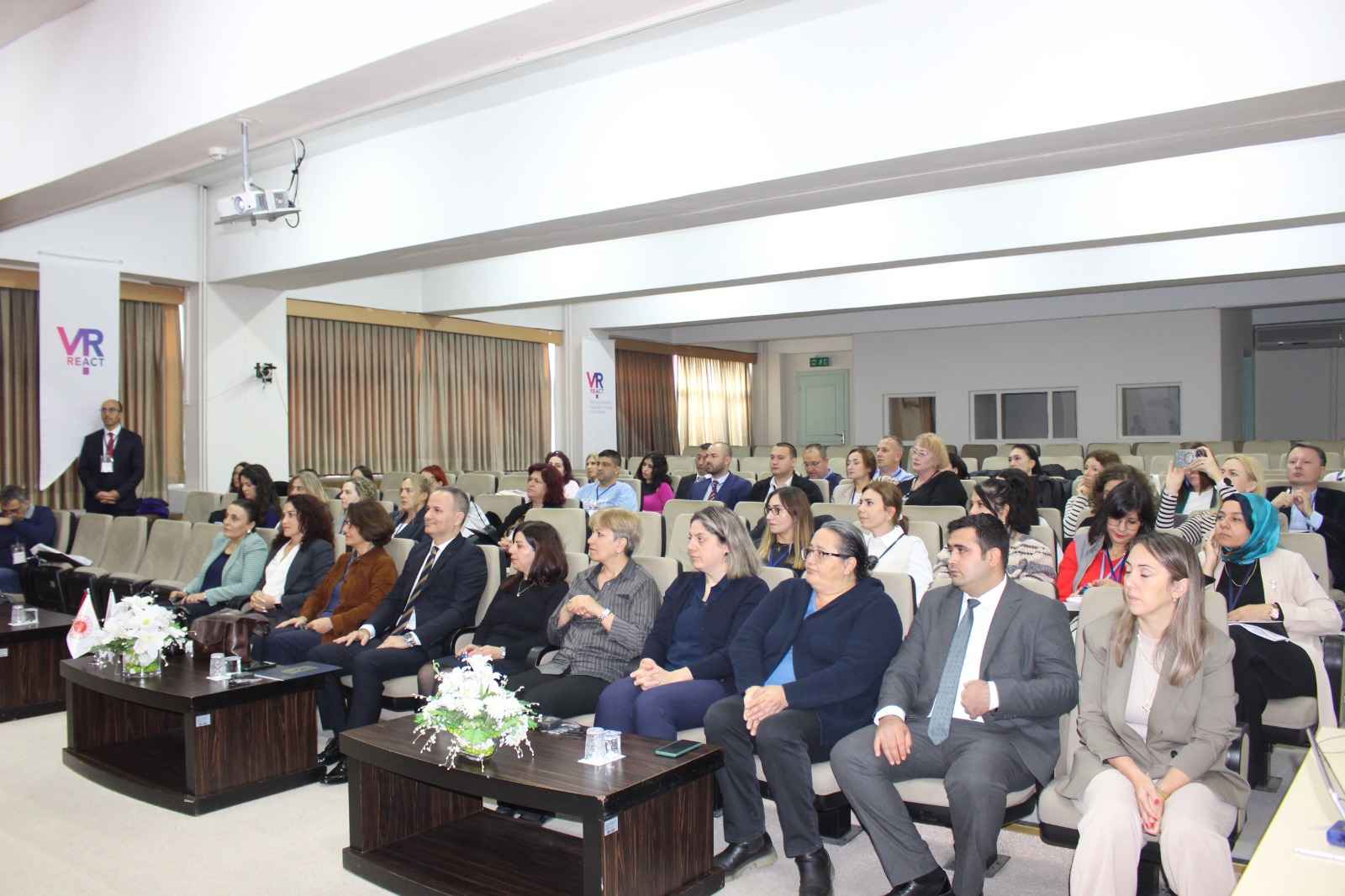
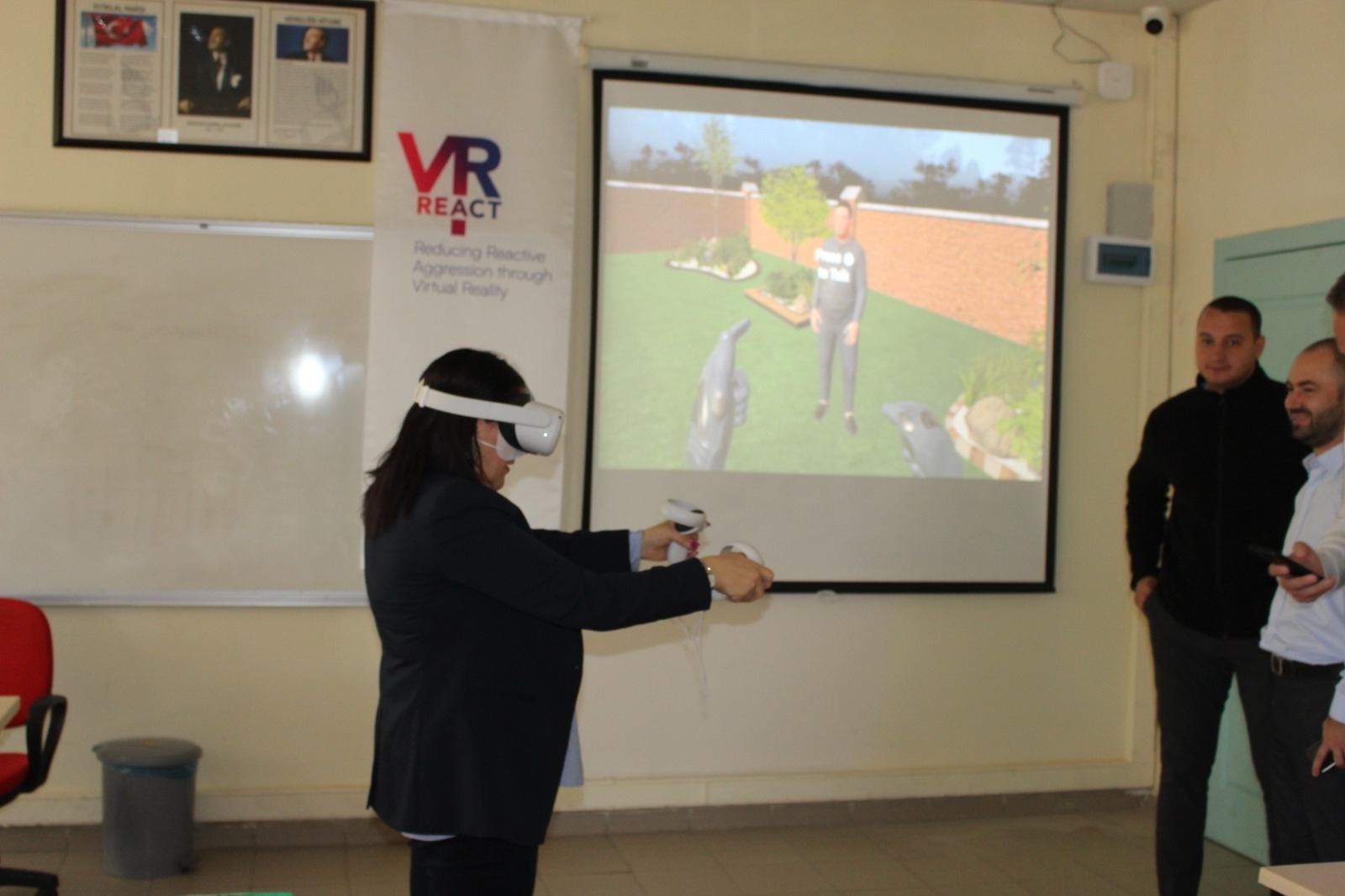
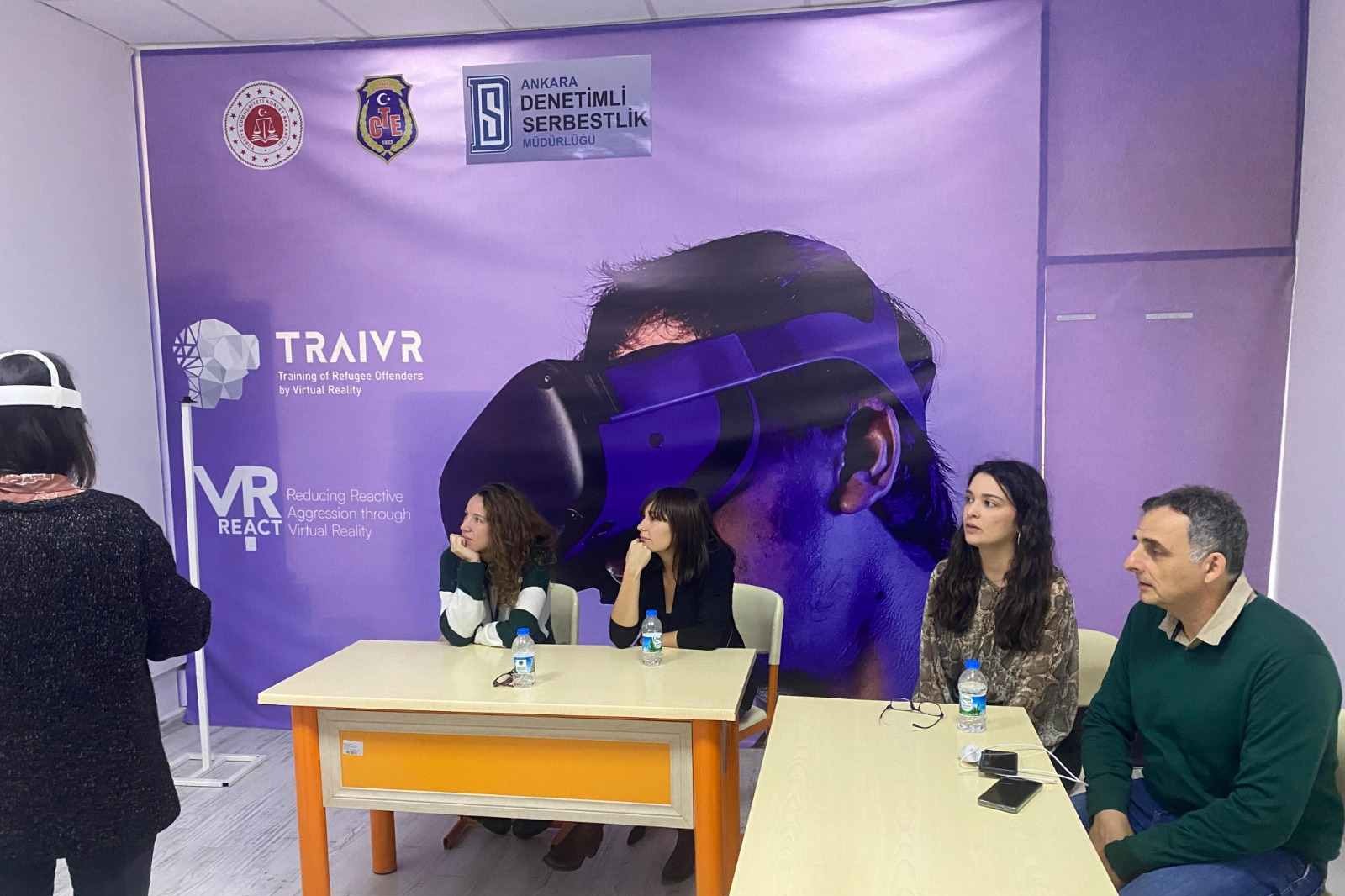
Feedback and Refinement for Practical Application
These insights will be directly fed back into the VR4React project, with extensive feedback gathered throughout the summit. Pre- and post-training surveys helped the VR4React team understand participants’ knowledge levels and gauge the effectiveness of each module. Daily evaluations allowed attendees to share immediate thoughts on both the theoretical and practical sessions, identifying areas where VR scenarios could be enhanced for greater realism and impact.
The summit also featured a brainstorming session, where participants discussed potential improvements to the VR simulations and suggestions for the project. This feedback loop was essential, ensuring that the VR4React training modules remain grounded in the practical needs of correctional professionals.
The VR4React summit in Ankara underscored VR’s potential as a powerful tool for managing aggression in prisons. By blending immersive VR simulations with structured theoretical training, the programme offers a dual approach that equips incarcerated individuals and staff with essential skills for handling high-stress situations. With plans to incorporate the insights gathered at the summit, the VR4React project is well-positioned to adapt and refine its training modules for use in prison establishments across Europe, marking a transformative step in aggression management and prison safety.
¹ Bushman, B. J., & Anderson, C. A. (2001). “Is it time to pull the plug on hostile versus instrumental aggression dichotomy?”, Psychological Review, 108 (1), pp. 273-279
Learn more about this project

VR4React
Reducing Reactive Aggression through Virtual Reality
The VR4React partnership is led by the University Rey Juan Carlos (Spain), and is partnered by organisations from Portugal (IPS_Innovative Prison Systems), North Macedonia (Faculty of Security, University of Bitola), Greece (KMOP – Education and Innovation Hub), the Republic of Moldova (National Administration of Penitentiaries), Romania (Baia Mare Penitentiary), Poland (Polish Platform for Homeland Security), and Turkey (Ankara Probation Directorate).
More Rehabilitation, Reintegration and Community Projects

VR4DRUG Rehab
Developing and Using Virtual Reality Technology for the Rehabilitation of Drug Users in Probation Services
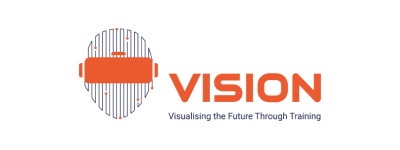
VISION
Visualising the Future Through Training

ViRTI
Virtual reality for training inmates

Turning Blue
Integrating Young Offenders Through the Blue Economy

TRIANGLE
Secured digital education system for vocational skills for youngsters in closed institutions

TRAIVR
Training of Refugee Offenders by Virtual Reality
Related news
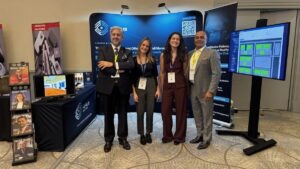
Shaping the future of rehabilitation with immersive tools and smart systems at ICPA 2025
Read More »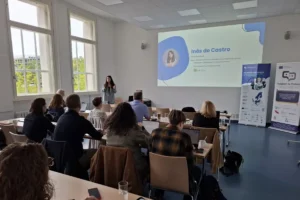
IPS showcases virtual reality solutions for skills development and stress management at Berlin workshop
Read More »
JUSTICE TRENDS Magazine Launches 14th Edition: Expanding the Frontiers of Rehabilitation Support
Read More »


